 The researcher Núria Montserrat accompanies the president of the European Research Council (ERC) together with a selection of the best European researchers, at the Summer Davos annual Meeting, organised by the World Economic Forum (WEF). She has participated in several forums about how to work on more prosperous future and she explained how the research in organ regeneration that she is currently undertaking at IBEC can help in the fight against cancer.
The researcher Núria Montserrat accompanies the president of the European Research Council (ERC) together with a selection of the best European researchers, at the Summer Davos annual Meeting, organised by the World Economic Forum (WEF). She has participated in several forums about how to work on more prosperous future and she explained how the research in organ regeneration that she is currently undertaking at IBEC can help in the fight against cancer.
The Annual Meeting of the New Champions (AMNC) also known as Summer Davos, is one of the events that brings together the brightest minds on the planet to discuss issues related to scientific research, leadership, and innovation. On this occasion, the forum was from 1 to 3 July and was held in the Chinese city of Dailan with the participation of the European delegation composed of its president, the mathematician Jean-Pierre Bourguignon and ten of the most outstanding European scientists.


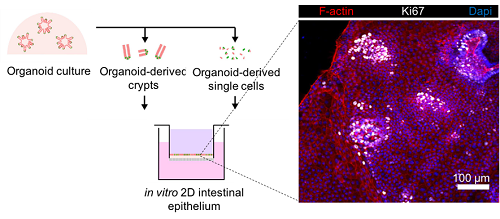
 During the last decade, intestinal organoids have emerged as a crucial tool to study intestinal biology in vitro. However, their sphere-like geometry limits the access to the organoid’s lumen hampering their use in many functional experiments where independent access to the different sides of the epithelium is required.
During the last decade, intestinal organoids have emerged as a crucial tool to study intestinal biology in vitro. However, their sphere-like geometry limits the access to the organoid’s lumen hampering their use in many functional experiments where independent access to the different sides of the epithelium is required. 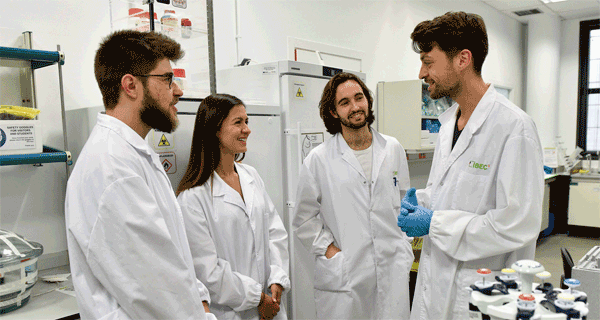
 This Friday took place at CosmoCaixa Barcelona the diploma award ceremony of the INPhINT PhD fellowships granted by Fundació bancaria “La Caixa”. The call received more than 1.100 applications and only 77 where selected for a total value of more than 9 million euros.
This Friday took place at CosmoCaixa Barcelona the diploma award ceremony of the INPhINT PhD fellowships granted by Fundació bancaria “La Caixa”. The call received more than 1.100 applications and only 77 where selected for a total value of more than 9 million euros. 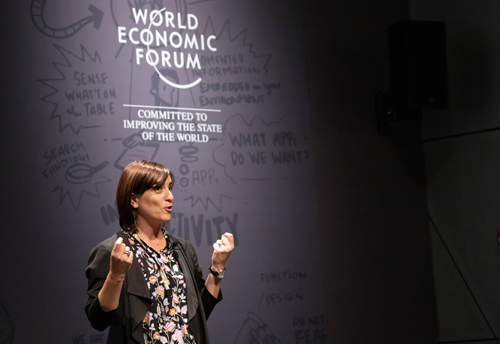 The researcher Núria Montserrat accompanies the president of the European Research Council (ERC) together with a selection of the best European researchers, at the Summer Davos annual Meeting, organised by the World Economic Forum (WEF). She has participated in several forums about how to work on more prosperous future and she explained how the research in organ regeneration that she is currently undertaking at IBEC can help in the fight against cancer.
The researcher Núria Montserrat accompanies the president of the European Research Council (ERC) together with a selection of the best European researchers, at the Summer Davos annual Meeting, organised by the World Economic Forum (WEF). She has participated in several forums about how to work on more prosperous future and she explained how the research in organ regeneration that she is currently undertaking at IBEC can help in the fight against cancer.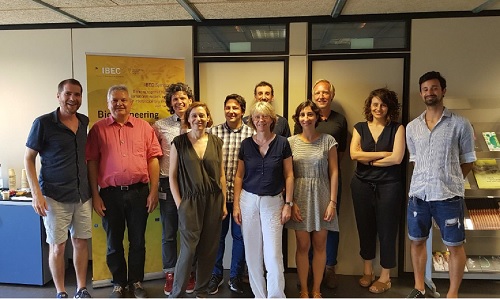
 A group of experts at Institute for Bioengineering of Catalonia (IBEC) lead the European project BRIGHTER (Bioprinting by light-sheet lithography: engineering complex tissues with high resolution at high speed), an initiative to develop an innovative and high resolution 3D bioprinting technology able to produce functional tissues.
A group of experts at Institute for Bioengineering of Catalonia (IBEC) lead the European project BRIGHTER (Bioprinting by light-sheet lithography: engineering complex tissues with high resolution at high speed), an initiative to develop an innovative and high resolution 3D bioprinting technology able to produce functional tissues.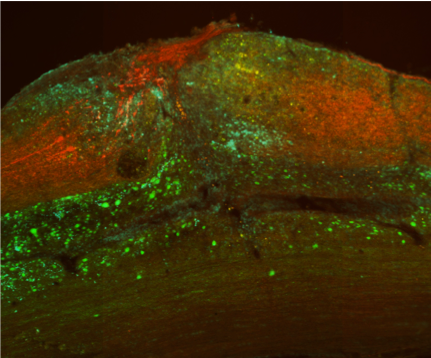
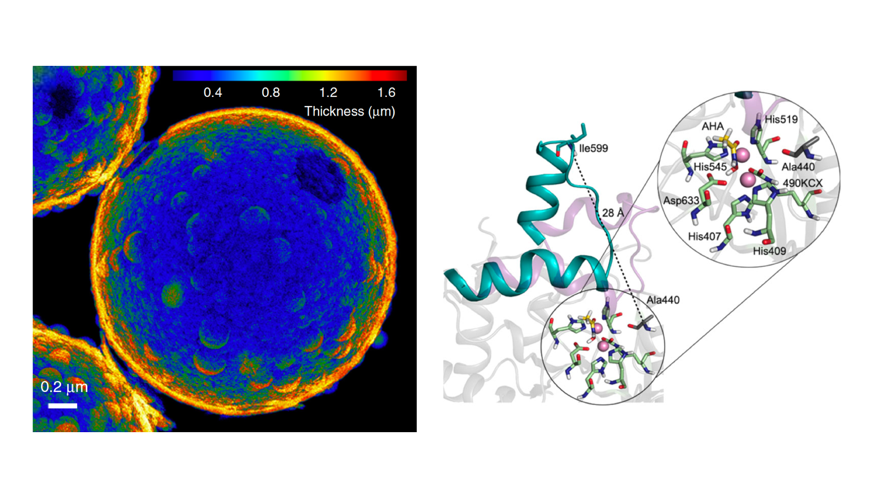 A study led by researchers at the Institute for Bioengineering of Catalonia (IBEC) opens the door to moving new microscopic objects using an entire library of enzymes According to experts, these microrobots will be able to be used in the near future for environmental and biomedical purposes.
A study led by researchers at the Institute for Bioengineering of Catalonia (IBEC) opens the door to moving new microscopic objects using an entire library of enzymes According to experts, these microrobots will be able to be used in the near future for environmental and biomedical purposes.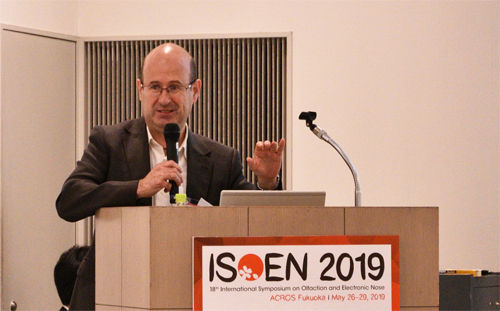 Santiago Marco, group leader of the Signal and information processing for sensing systems research group at IBEC has recently been appointed vice-president for the next two years of the International Society for Olfaction and Chemical Sensing (ISOCS) during the general assembly held at the International Symposium on Olfaction and Electronic Nose Conference (ISOEN) in ACROS, Fukuoka, Japan.
Santiago Marco, group leader of the Signal and information processing for sensing systems research group at IBEC has recently been appointed vice-president for the next two years of the International Society for Olfaction and Chemical Sensing (ISOCS) during the general assembly held at the International Symposium on Olfaction and Electronic Nose Conference (ISOEN) in ACROS, Fukuoka, Japan. 
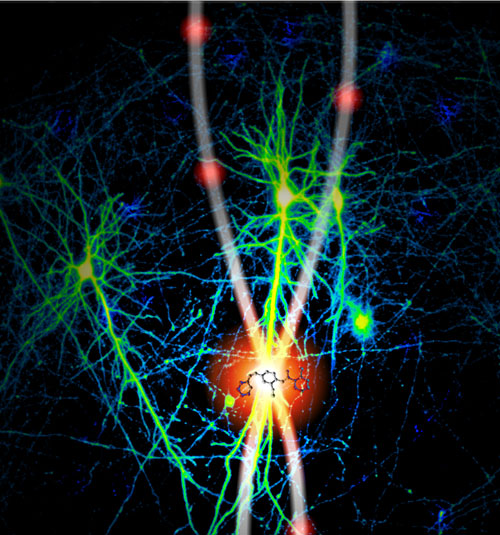
 Scientists from the Institute for Bioengineering of Catalonia develop a technique that enables them to work out the specific function of a neuronal receptor according to its location in the brain. The study, published in PNAS, is based on the activation of photoswitchable drugs with micrometric precision and offers new opportunities in neurobiology.
Scientists from the Institute for Bioengineering of Catalonia develop a technique that enables them to work out the specific function of a neuronal receptor according to its location in the brain. The study, published in PNAS, is based on the activation of photoswitchable drugs with micrometric precision and offers new opportunities in neurobiology.